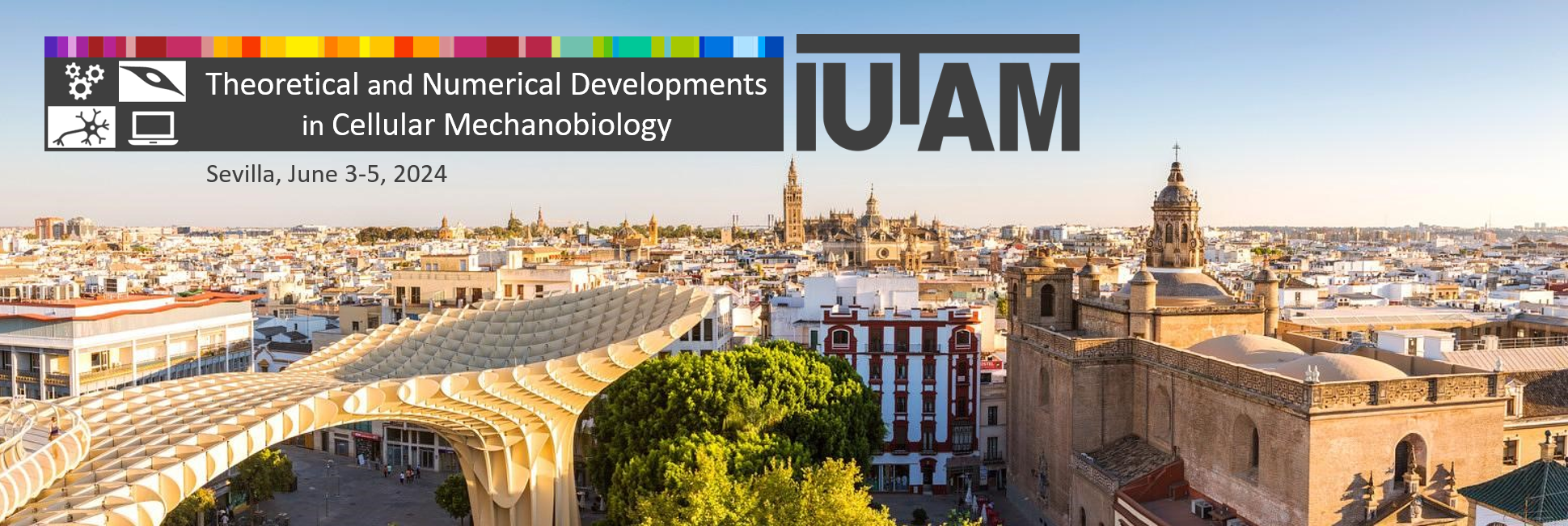

Confirmed Keynote speakers:
· Marino Arroyo, UPC (Spain).
Collective invasion in strain-stiffening matrices by durolysis
· Stéphane Avril, Ecole des Mines de Saint-Etienne (France).
Bridging the gap between mechanobiology of aortic smooth muscle cells and biomechanics of aortic aneurysms
· Alessandra Cambi, Radboud University (The Netherlands).
Mechanobiology of immune cells: how stiffness and geometry of the extracellular environment influence myeloid cell properties
· Guillaume Charras, University College London (UK).
The rupture strength of living cell sheets
· Ovijit Chaudhuri, Stanford (USA).
Cell migration and morphogenesis in viscoelastic matrices
· Christian J. Cyron, TU Hamburg (Germany).
What mechanical quantity do cells regulate in soft tissues?
· Xiaoyun Ding, University of Colorado Boulder (USA).
High throughput mechanical disruption of plasma membrane and nuclear envelope for repair dynamics study
· Dennis Discher, University of Pennsylvania (USA).
Pan-tissue scaling of mechanoregulated genes and heritable genetic changes in cancer
· Ben Fabry, Univ Erlangen-Nuremberg (Germany).
High-throughput measurements of viscoelastic cell properties: Potential and limitations
· Elisabeth Fischer-Friedrich, TU Dresden (Germany).
Twofold mechanosensitivity ensures actin cortex reinforcement upon peaks in mechanical tension
· Guy Genin, Washington University St. Louis (USA).
Recursive cell-matrix interactions
· Héctor Gómez, Purdue University (USA).
Computational modeling of collective chemotaxis
· Sandra Loerakker, TU Eindhoven (The Netherlands).
Computational models to understand and advance the regeneration of engineered cardiovascular tissues
· Patrick McGarry, NUI Galway (Ireland).
Active contractility and remodelling of stress fibres and sarcomeres
· Debora Monego, Uni-Heidelberg (Germany).
Exploring the evolutionary mechanisms of collagen as a protein material
· Corey Neu, University of Colorado Boulder (USA).
Inverse modeling to map heterogeneous properties of the cell nucleus
· José A. Sanz-Herrera, University of Seville (Spain).
Monitoring the mechanical activity of cancer cells under normal, hypoxic and chemotherapeutic conditions
· Ulrich Schwarz, Heidelberg University (Germany).
Controlling cell contraction by optogenetics
· Vivek Shenoy, University of Pennsylvania (USA).
How do forces from the cell’s environment affect DNA organization?
· Bart Smeets, KU Leuven (Belgium).
Computational modeling of active foam dynamics in 3D tissues
· Hans Van Oosterwyck, KU Leuven (Belgium).
Measuring cellular forces in 3D and application to microvascular disease